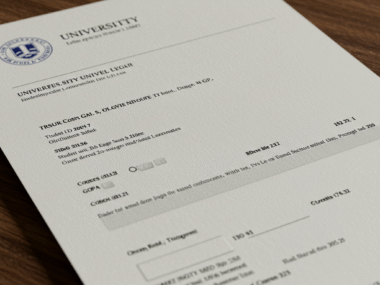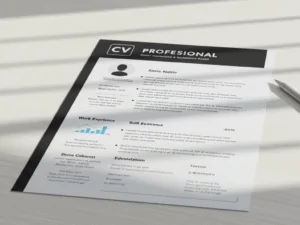Ever stood at the crossroads of your education, wondering whether a college, university, or polytechnic is the best path to your dream career? Choosing the right institution can feel like a high-stakes decision, but understanding the differences between colleges, universities, and polytechnics can make it a lot clearer.
In 2025, with education evolving rapidly, this guide breaks down each option to help you decide. Whether you’re a high school graduate, a working professional, or someone exploring new career paths, this article will help you weigh the pros, cons, and unique features of each institution to find the perfect fit for your goals. Let’s dive in and explore what sets colleges, universities, and polytechnics apart, and which one is right for you!
Why Choosing the Right Institution Matters
Your choice of institution shapes your education, career prospects, and personal growth. Colleges, universities, and polytechnics each offer distinct experiences, programs, and outcomes. Picking the wrong one could mean wasting time, money, or missing out on opportunities that align with your ambitions.
In 2025, the global demand for skilled professionals in fields like technology, healthcare, and business makes this decision even more critical. By understanding the differences, you can choose a path that matches your learning style, budget, career goals, and lifestyle. This guide covers everything from degree offerings to costs, campus life, and career outcomes, ensuring you make an informed choice without breaking the bank.
What Is a College?
A college is an institution that typically focuses on undergraduate education, offering associate’s degrees (2 years) or bachelor’s degrees (4 years) in various fields. Colleges are often smaller than universities, emphasizing teaching, community, and practical skills. They can be public, private, or specialized (e.g., community colleges, liberal arts colleges).
Key Features of Colleges
- Degree Programs: Associate’s (e.g., Associate of Arts) or bachelor’s degrees (e.g., Bachelor of Science).
- Focus: Undergraduate education with hands-on teaching and smaller class sizes.
- Duration: 2–4 years, depending on the program.
- Size: Smaller campuses, fostering close-knit communities.
- Cost: Often cheaper than universities, especially community colleges.
- Examples: Amherst College (USA), Bow Valley College (Canada), Federal College of Education (Nigeria).
Types of Colleges
- Community Colleges: Offer 2-year associate’s degrees or certificates, ideal for vocational training or transferring to a 4-year institution. Example: Lagos City Polytechnic (Nigeria).
- Liberal Arts Colleges: Focus on broad education in humanities, sciences, and arts, emphasizing critical thinking. Example: Williams College (USA).
- Specialized Colleges: Focus on specific fields like art, music, or technology. Example: Yaba College of Technology (Nigeria).
Pros of Choosing a College
- Affordable Tuition: Community colleges often cost less (e.g., ₦50,000–₦200,000/year in Nigeria).
- Smaller Classes: Personalized attention from instructors.
- Flexible Entry: Lower admission requirements, ideal for students with average grades.
- Career-Focused: Many programs prepare you for immediate employment.
- Transfer Options: Community college credits can transfer to universities for further study.
Cons of Choosing a College
- Limited Programs: Fewer degree options compared to universities.
- Less Research Focus: Not ideal for those interested in academic research.
- Smaller Network: Fewer alumni connections compared to universities.
- Perception: Some employers may prioritize university degrees.
Who Should Choose a College?
Colleges are perfect for students who:
- Want affordable, practical education.
- Prefer smaller, supportive learning environments.
- Plan to enter the workforce quickly or transfer to a university later.
- Have specific career goals in fields like nursing, IT, or teaching.
What Is a University?
A university is a larger institution offering a wide range of undergraduate and graduate programs, including bachelor’s, master’s, and doctoral degrees. Universities emphasize research, academic rigor, and diverse disciplines, making them ideal for students seeking advanced education or specialized careers.
Key Features of Universities
- Degree Programs: Bachelor’s, master’s, PhDs, and professional degrees (e.g., medicine, law).
- Focus: Research, innovation, and comprehensive education.
- Duration: 4 years for bachelor’s, 1–2 years for master’s, 3–7 years for PhDs.
- Size: Large campuses with thousands of students and diverse facilities.
- Cost: Higher tuition (e.g., ₦500,000–₦2 million/year in Nigeria for private universities).
- Examples: University of Lagos (Nigeria), Harvard University (USA), University of Oxford (UK).
Types of Universities
- Public Universities: Funded by governments, often more affordable. Example: Ahmadu Bello University (Nigeria).
- Private Universities: Higher costs but may offer scholarships. Example: Covenant University (Nigeria).
- Research Universities: Focus on cutting-edge research and graduate programs. Example: Stanford University (USA).
- Specialized Universities: Focus on specific fields like technology or medicine. Example: MIT (USA).
Pros of Choosing a University
- Diverse Programs: Wide range of majors, from engineering to philosophy.
- Research Opportunities: Access to labs, funding, and faculty for academic projects.
- Global Recognition: Degrees often carry more prestige with employers.
- Large Networks: Extensive alumni networks for career connections.
- Campus Life: Vibrant student life with clubs, sports, and events.
Cons of Choosing a University
- Higher Costs: Tuition and living expenses can be steep.
- Larger Classes: Less personalized attention in introductory courses.
- Competitive Admission: Requires strong academic records or entrance exams (e.g., JAMB in Nigeria).
- Longer Duration: Graduate programs extend study time.
Who Should Choose a University?
Universities are ideal for students who:
- Want advanced degrees (master’s or PhD).
- Are interested in research or academic careers.
- Seek diverse academic options and a vibrant campus experience.
- Aim for careers in fields like medicine, law, or engineering.
What Is a Polytechnic?
A polytechnic is an institution focused on technical and vocational education, offering diplomas, higher national diplomas (HNDs), and sometimes bachelor’s degrees. Polytechnics prioritize hands-on training and industry-specific skills, making them a great choice for career-driven students.
Key Features of Polytechnics
- Degree Programs: National Diplomas (ND, 2 years), Higher National Diplomas (HND, 2 years post-ND), or bachelor’s degrees in technical fields.
- Focus: Practical, industry-oriented training in fields like engineering, IT, or business.
- Duration: 2–4 years for diplomas, longer for degree programs.
- Size: Varies, but often smaller than universities with a focus on workshops and labs.
- Cost: Affordable, often similar to or cheaper than colleges (e.g., ₦50,000–₦150,000/year in Nigeria).
- Examples: Yaba College of Technology (Nigeria), Singapore Polytechnic, TAFE Queensland (Australia).
Types of Polytechnics
- Technical Polytechnics: Focus on engineering, IT, and applied sciences. Example: Federal Polytechnic Ilaro (Nigeria).
- Vocational Polytechnics: Offer training in trades like welding, hospitality, or design. Example: TAFE Institutes (Australia).
- Degree-Granting Polytechnics: Provide bachelor’s degrees alongside diplomas. Example: Kwantlen Polytechnic University (Canada).
Pros of Choosing a Polytechnic
- Hands-On Learning: Emphasis on practical skills for immediate employment.
- Affordable: Lower tuition than universities, especially public polytechnics.
- Industry Connections: Strong ties with employers for internships and jobs.
- Shorter Programs: Diplomas take 2–4 years, faster than university degrees.
- Flexible Entry: Easier admission requirements than universities.
Cons of Choosing a Polytechnic
- Limited Academic Scope: Fewer liberal arts or research-focused programs.
- Perception Issues: Some employers in Nigeria prefer university degrees over HNDs.
- Fewer Graduate Options: Limited master’s or PhD pathways compared to universities.
- Smaller Campuses: Less vibrant student life than universities.
Who Should Choose a Polytechnic?
Polytechnics are best for students who:
- Want practical, job-ready skills in technical or vocational fields.
- Prefer affordable education with a quick path to employment.
- Are interested in careers like engineering, IT, or hospitality.
- Value hands-on learning over academic theory.
Comparing Colleges, Universities, and Polytechnics
To make your decision easier, here’s a side-by-side comparison based on key factors:
| Factor | College | University | Polytechnic |
| Degree Types | Associate’s, bachelor’s | Bachelor’s, master’s, PhD | ND, HND, sometimes bachelor’s |
| Focus | Undergraduate, teaching-focused | Research, academic diversity | Practical, technical skills |
| Duration | 2–4 years | 4–7+ years | 2–4 years |
| Cost (Nigeria) | ₦50,000–₦500,000/year | ₦500,000–₦2 million/year | ₦50,000–₦150,000/year |
| Class Size | Small (20–50 students) | Large (50–200+ students) | Medium (30–100 students) |
| Career Path | Quick employment or transfer | Advanced careers, research | Technical/vocational jobs |
| Campus Life | Close-knit, limited activities | Vibrant, diverse clubs and events | Moderate, focused on workshops |
| Admission | Flexible, lower requirements | Competitive, exams like JAMB | Moderate, technical focus |
Which Is Right for You?
Choosing between a college, university, or polytechnic depends on your goals, budget, and learning style. Here’s a guide to help you decide:
Choose a College If:
- You want affordable education with a quick path to work or further study.
- You prefer smaller classes and personalized attention.
- Your goal is a specific skill or a stepping stone to a university degree.
- Example Scenario: A Nigerian student aiming to become a nurse might choose a community college for a 2-year nursing diploma before transferring to a university.
Choose a University If:
- You’re aiming for advanced degrees or research-oriented careers.
- You want a broad education with diverse majors and vibrant campus life.
- You’re prepared for higher costs and competitive admissions.
- Example Scenario: A student passionate about medicine might attend the University of Ibadan for a medical degree, followed by a residency program.
Choose a Polytechnic If:
- You want hands-on training for technical or vocational careers.
- You prefer affordable, shorter programs with strong industry ties.
- You’re focused on immediate employment in fields like engineering or IT.
- Example Scenario: An aspiring software developer might choose Federal Polytechnic Ilaro for an HND in Computer Science, landing a tech job in Lagos.
Costs and Financial Considerations
Cost is a major factor, especially in 2025 with rising living expenses. Here’s a breakdown for Nigerian students (estimates in naira, based on 2025 rates):
- Colleges: Public community colleges like Lagos City Polytechnic charge ₦50,000–₦200,000/year. Private colleges may cost ₦300,000–₦500,000/year.
- Universities: Public universities like UNILAG cost ₦100,000–₦300,000/year, while private ones like Babcock University charge ₦1 million–₦2 million/year.
- Polytechnics: Public polytechnics like YabaTech cost ₦50,000–₦150,000/year. Private polytechnics may charge ₦200,000–₦400,000/year.
Funding Options
- Scholarships: Available at universities (e.g., MTN Foundation Scholarship) and some polytechnics.
- Student Loans: Nigeria’s NELFUND offers loans for public institutions.
- Work-Study: Common in colleges and polytechnics, allowing part-time jobs.
- Grants: Some colleges offer need-based grants for low-income students.
Tip: Apply for scholarships early via platforms like scholarships.ng and check institution websites for financial aid.
Admission Requirements
Admission processes vary, but here’s a general guide for Nigerian students in 2025:
- Colleges: Require O’Level results (WAEC/NECO) with 5 credits, including English and Math. Some accept lower grades or alternative qualifications.
- Universities: Need WAEC/NECO plus JAMB UTME scores (usually 180–200+). Additional requirements like post-UTME exams apply.
- Polytechnics: Require WAEC/NECO and JAMB scores (often lower than university cutoffs). Some offer direct entry for ND holders.
Tip: Check specific institution websites or JAMB’s portal (jamb.gov.ng) for exact requirements and deadlines.
Career Outcomes and Opportunities
Your institution choice impacts your career path. Here’s how each stacks up:
- Colleges: Graduates often enter the workforce quickly in roles like teaching, nursing, or IT support. Community college graduates can transfer to universities for higher degrees.
- Universities: Graduates pursue advanced roles in medicine, law, engineering, or academia. University degrees are often preferred for corporate or research positions.
- Polytechnics: Graduates excel in technical fields like software development, civil engineering, or hospitality management. HND holders can pursue top-up degrees for further advancement.
Data Point: In Nigeria, 60% of polytechnic graduates find employment within 6 months, compared to 50% for university graduates, per a 2024 study by Jobberman Nigeria.
Global Perspectives: Colleges, Universities, and Polytechnics Worldwide
The differences apply globally, with some variations:
- USA: Community colleges offer 2-year degrees, universities provide 4-year and graduate programs, and polytechnics (like Cal Poly) focus on applied sciences.
- UK: Colleges offer vocational diplomas, universities provide academic degrees, and institutes like City and Guilds focus on technical training.
- Canada: Colleges like Seneca offer diplomas and applied degrees, universities like UBC focus on research, and polytechnics like BCIT emphasize technical skills.
- Nigeria: Polytechnics like YabaTech are popular for technical education, while universities like UNILORIN lead in academic prestige.
Tip: Research international institutions if studying abroad is an option. Use platforms like Studyportals for global comparisons.
Trends in Higher Education for 2025
- Online Learning: Colleges and universities increasingly offer free or low-cost online courses (e.g., via Coursera or SWAYAM), while polytechnics focus on hybrid technical training.
- Skill-Based Education: Polytechnics and colleges are gaining popularity for job-ready skills in AI, cybersecurity, and renewable energy.
- Global Recognition: Nigerian polytechnic HNDs are now recognized in some countries like Canada for immigration points.
- Affordability Focus: Governments are subsidizing public colleges and polytechnics to reduce tuition costs.
Frequently Asked Questions (FAQs)
Can I switch from a polytechnic to a university?
Yes, many polytechnics offer ND-to-HND pathways, and HND graduates can pursue top-up degrees at universities. Direct entry programs also allow ND holders to join universities.
Are polytechnic degrees less valuable than university degrees?
Not necessarily. Polytechnics excel in technical fields, and HNDs are valued in industries like engineering. However, some employers in Nigeria prefer university degrees for managerial roles.
Which is cheaper: college, university, or polytechnic?
Colleges and polytechnics are generally cheaper, with public institutions charging ₦50,000–₦200,000/year. Universities, especially private ones, can cost ₦1 million+/year.
Can I study abroad at a college or polytechnic?
Yes, many countries offer affordable college and polytechnic programs for international students. Check visa requirements and scholarships on sites like studyabroad.ng.
How do I know which institution is best for my career?
Match your career goals to the institution’s strengths. For technical skills, choose a polytechnic. For research or advanced degrees, opt for a university. For quick, affordable training, consider a college.
How to Decide: Practical Steps
- Assess Your Goals: Want a quick job or a long-term academic career? Polytechnics suit the former, universities the latter.
- Check Your Budget: Compare tuition and living costs. Public colleges and polytechnics are often the cheapest.
- Research Programs: Look for courses aligned with your interests on institution websites or platforms like Class Central.
- Consider Admission: Check if you meet JAMB or WAEC requirements. Polytechnics and colleges are less competitive.
- Visit Campuses: If possible, tour local institutions to feel the vibe.
- Talk to Alumni: Connect via LinkedIn or X to learn about career outcomes.
- Apply Early: Deadlines for 2025 admissions typically start in March (JAMB, Nigeria).
Final Thoughts
Choosing between a college, university, or polytechnic is about finding the right fit for your dreams, budget, and learning style. Colleges offer affordable, hands-on education for quick career starts. Universities provide diverse, prestigious degrees for academic or advanced careers. Polytechnics deliver practical, technical skills for immediate employment.
In 2025, with education more accessible than ever, you have the power to shape your future. Whether you’re eyeing a nursing diploma at a college, a medical degree at a university, or an engineering HND at a polytechnic, the choice is yours. Start researching today, check JAMB or institution websites, and take the first step toward your ideal career. Which path will you choose?










